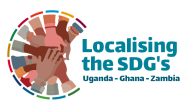Kampala, UGANDA – According to the United Nations (UN), Uganda is still a part of the least developing countries and, just like most countries, is subsequently characterized by slow development due to several issues like escalating poverty, hunger, high rate of unemployment, poor health conditions, poor governance, shortage of clean water & sanitation, insecurity, poor waste disposal, and so much more – all of which are currently affecting at least 90% of the Ugandan population irrespective of the standards of living.
In May 2022, Open Space Center conducted the second phase of the “Sesaamu” Sessions – a local term to mean Youth Parliaments focused on youth leader representatives in Kampala, Nakawa, Mukono, and Makindye. During these sessions, there was an interaction with the youth leaders from various parishes who came together to discuss the issues they face in the various communities and brainstorm solutions, all guided by the localized Sustainable Development Goals (SDGs).
Like the UN, Uganda is on a journey to achieve Agenda 2030 – goals that were carefully set up in 2015 – and subsequently aligning them with the third National Development Plan NDP (III) to ensure the achievement of the goals for the development of the country.
Open Space believes strongly in involving the locals in underserved communities as a forte for owning the problems and their inclusion to come up with better solutions. The Sesaamu sessions were therefore convened by the Community Task Force members (CTF) who wholesomely participated in capacity-building trainings much earlier to bring their fellow youth together for a greater cause. The four communities that were brought together presented similar issues, including high poverty levels – a crisis Uganda has been fighting from time immemorial. Community leaders attribute poverty to high school dropouts, hunger strikes, and high crime rates.
Sadat, a member of the CTF and Youth Councilor Kampala Division, expressed that the rate of crime among the youth is because they are striving for a living.
“The young people in Kampala Division have opted for crimes like theft, burglary, and petty activities that bring in money to survive the current state of the economy,” she said.
Unemployment, one of the uncomforting aspects eating up the young people of Uganda, was also one of the issues raised and dominant among the different divisions. As many aspects lead to this, youth leaders say it is due to the negative mindset of the youth towards the existing jobs today. For context, the opportunities available in these communities include carpentry, welding, pottery, and brick making, to mention a few – most of which are hands-on skills. According to the youth leaders we interacted with, the mindset has since set the youth back, leaving them with the only option of petty crimes as a means of survival.
While the quality of life can be accomplished in healthy environments, this is not the case in most Kampala Suburbs due to poor waste disposal, which hinders the excellent health and well-being of the locals in these communities. Youth leaders attest to the level of sanitation through the poor disposal mechanism, hindering the growth and development, respectively.
The health conditions in these different divisions are also characterized by early teenage pregnancies, drug abuse, and the lack of sexual reproductive health services – which in the long run has led to a high crime rate, school dropouts, and high levels of infections among the youth.
Context
The Localizing SDGs is a project implemented by Open Space Center in partnership with Crossing Borders and with support from CISU. This project aims at popularizing the Sustainable Development Goals (SDGs) in local communities and schools in Uganda to ensure that the 17 goals are achieved by 2030 and to also focus on harnessing local opportunities, priorities, and ideas, including lobbying for supportive policy frameworks for SDGs in Uganda.
The SDGs were goals that were developed by the United Nations to ensure development in her member states.

